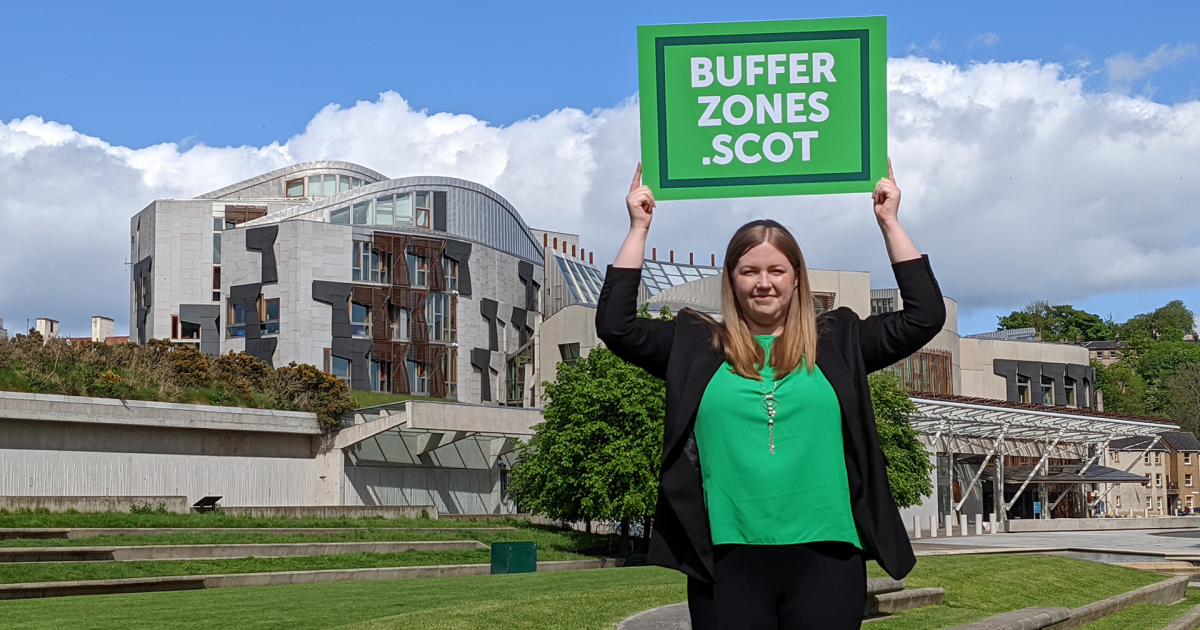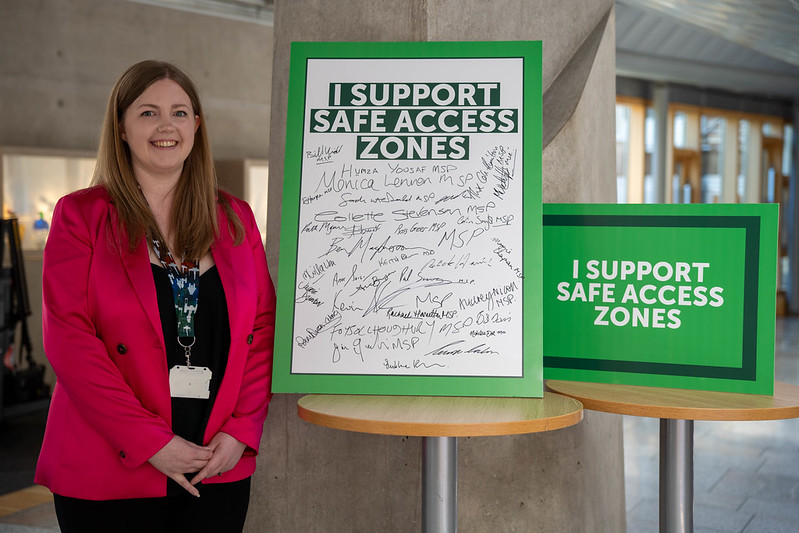Nobody should be harassed when accessing healthcare
Gillian Mackay gave evidence to the Health, Social Care and Sport Committee in support of her Bill to introduce 'buffer zones' to stop anti-choice protesters from targeting abortion service providers.

By passing this Bill, Committee and Parliament can make a real difference to the lives of women, and send an unequivocal message that access to healthcare is not up for debate.
Let me say here that I know that abortion is an emotive issue – in this Parliament, as in the rest of the country, there are people with diametrically opposed views. I do not expect that to change.
However, this Bill is not and never has been about abortion.
It is about the right and ability of women to access the healthcare they need, free from fear that they will be met with judgement and shaming, with placards and signs, and with groups of people telling them they are wrong.
Securing that freedom should matter to everyone, irrespective of their views on abortion.
It should matter especially to this Committee, which has rightly been fighting over the last 3 years to understand and dismantle the barriers that prevent people getting the healthcare they need, when and where they need it.
In making this argument, I accept that many of the people who participate in anti-abortion activity outside hospitals do not believe their actions make it harder for women to access healthcare – that, in fact, they believe they help women.
Without being too blunt, those beliefs do not change the reality that some women find their activities distressing and alarming.
The Minister earlier noted the powerful testimony of the witnesses who appeared before you in February. Like her, I think it needs no embellishment.
But I will say that, unfortunately, the experiences of those witnesses are not unique. In meetings with healthcare providers, in responses to my consultation, and in conversations with women, the message is the same: anti-abortion activity can make accessing abortion treatment harder than it should be.
At worst, as Professor Cameron noted, it can mean women delaying treatment, which can increase the risk of complications.
And even in less extreme cases, it can increase anxiety at a time when many women are already anxious.
We’ve probably all gone for a medical procedure and lain awake the night before, wondering if it’ll hurt or if something will go wrong. Worrying about what will happen inside the clinic.
Imagine fearing what might happen outside the clinic too – if there will be people there trying to influence your decision or calling you names. No one should have to endure that.
And the anxiety isn’t just about being judged; it can be about feeling exposed at a time when privacy matters most.
Nobody goes for a gallbladder operation and expects strangers to question their choices in the carpark.
Those seeking abortion should have the same benefit.
Because no matter why they go, they’ve made a very personal choice. And no matter how much progress has been made, there is still stigma around abortion, and for some women, a real sense of shame.
Going at all can take courage. That shouldn’t be compounded with fear of being identified or exposed.
And that fear may have an even greater impact in remote or rural areas, where anonymity is often harder to come by at the best of times.
Given all that, abortion should be the very last healthcare service we allow to be subject to unwanted influence or harassment. The very last area, as opposed to the only one.
I will conclude by making two further points.
Firstly, I have been told this Bill isn’t necessary. I wish with all my heart it wasn’t. However, you would not have heard the evidence you have in the last few weeks if existing law was sufficient.
There is no current solution that offers consistent protection, and that does not require women to experience harm before action is taken.
Secondly, I am not at all cavalier about the rights to freedom of expression, religion and assembly. I would never vote for a Bill that threatened them, never mind champion it through Parliament.
I am confident in the work we have done to ensure that right balance has been struck by this Bill. I will happily say more on this.
But in essence, I think it is proportionate to ensure that, for 200m from the grounds of only 30 premises in the whole of Scotland, women cannot be targeted for accessing healthcare to which they are legally entitled.

